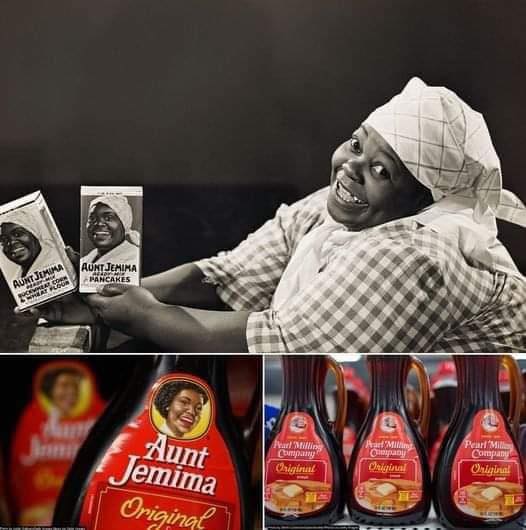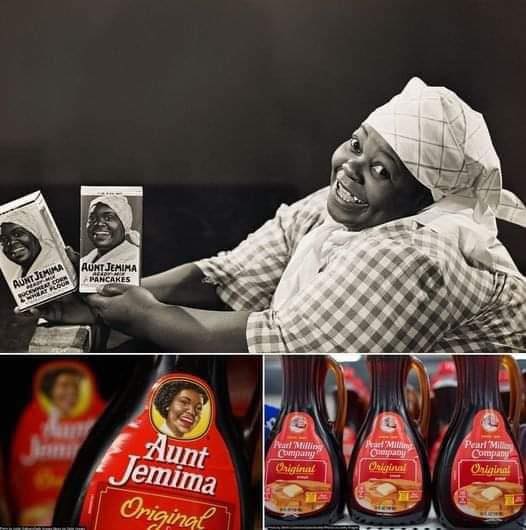When Quaker Oats announced that the iconic “Aunt Jemima” brand would be retired in 2020 as a response to the Black Lives Matter movement, it ignited a firestorm of opinions. While many praised the decision as a step towards addressing racial stereotypes, one person stood against it, causing a wave of debate about the erasure of black history and suffering.

Larnell Evans Sr., great-grandson of the woman who portrayed Aunt Jemima, voiced his objection just one day after the announcement. He expressed deep concern that retiring the brand would not only erase his great-grandmother’s legacy but also dismiss the painful history of African Americans. Evans, a Marine Corps veteran, passionately argued, “This is an injustice for me and my family. After profiting from using images of our slavery for many years, the company is now trying to sweep it all under the rug.”
Evans strongly believes that the racism targeted towards the Aunt Jemima brand originates from the other side, from white people who perpetuated stereotypes concerning black individuals. He points out that Quaker Oats benefited financially by exploiting images related to slavery, and now their solution is to eliminate his great-grandmother’s history – the history of a black woman. This hurts him deeply.
The brand’s emblem, which features a depiction of a black woman named Nancy Green, who was once enslaved, will now be permanently retired. Quaker Oats referred to her only as a “storyteller, cook, and missionary worker,” erasing her connection to slavery. Green’s involvement with the Aunt Jemima brand began in 1893 when she was hired to serve pancakes at the Chicago World’s Fair. Later, Anna Short Harrington, Evans’ great-grandmother, assumed the role in 1935 after being discovered serving pancakes at the New York State Fair.
Evans shared his frustration, stating that his great-grandmother worked for Quaker Oats for 20 years, traveling all over the United States and Canada, serving as Aunt Jemima. She dedicated her life to this role, and it pains him to think that her contributions are being erased. As a black man recounting his family history, he questions the right of Quaker Oats to erase their legacy so easily.
Evans further criticizes the Aunt Jemima brand for capitalizing on racial stereotypes for years and then conveniently disassociating from it. He questions why white corporations profited while African Americans received nothing in return. He vehemently opposes the idea of erasing history as if it never happened, without providing any acknowledgement or support for the black community.
The controversy surrounding Aunt Jemima’s retirement has sparked heated discussions. It is a polarizing topic, and people hold different viewpoints. In the comments section, we encourage you to share your opinions on this matter and engage in an open conversation.
In the meantime, if you support the Black Lives Matter movement and everything it represents, we invite you to share this article and spread awareness on Facebook.






